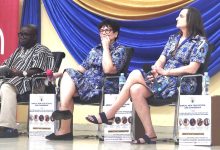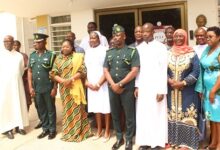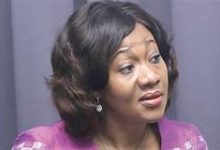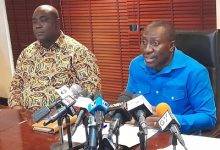Alhaji Dr Mahamudu Bawumia, the Vice President, yesterday cut the sod in the Yendi Municipality of the Northern Region, for the construction of a US$150- million Gulf of Guinea Northern Regions Social Cohesion (SOCO) projects.
We are happy the projects include water supply facilities, school buildings, healthcare facilities, markets, earth dams and other critical physical infrastructures.
Yesterday, we commended the World Bank for supporting the development of the country and we once again commend it for providing a loan for the execution of the SOCO projects, which are going to create jobs and reduce unemployment.
Besides, we are happy the projects aimed at ensuring the delivery of resilient community infrastructure and assets through a Community-Driven Development (CDD) approach are being implemented by the Ministry of Local Government and Decentralisation and Rural Development (MLGDRD) in 48 Metropolitan, Municipal and District Assemblies (MMDAs) across six regions, namely the Northern, North East, Upper East, Upper West, Savannah and Oti.
Once the projects are said to have been designed to address the effects of the spillover of conflicts and extremism from the Sahel Region, it means that the beneficiary communities must be made to grasp the important purpose and do all they can to support both execution and use of them.
That purpose in itself depicts the proactivity of the government in, at least, mitigating the negative effects on Ghanaians should the unexpected happen in the Sahel region and displaced people from that end have to come and live in the country.
We believe this is a good move that must be applauded by the whole country as it has the potential to save particularly the earmarked district assemblies and their regions and the country in general from overwhelming situations.
Most often, when displaced people move to a different country, they usually come to overwhelm their hosts as humans and their infrastructure and so if that happens unexpectedly, the situation becomes so bad.
Sometimes, the host country arranges to send the strangers elsewhere or back to their home countries; or the refugees themselves leave when things become
tough.
For instance, most of the refugees from west Darfur who arrived in Ghana in April 2005 had fled Darfur since the conflict broke there two years earlier and remained at refugee camps in eastern Chad until food and water became short in supply in their over-crowded camps and so they had to move on further in search of a better life.
The world has become a dangerous place due to certain vested interests and so governments must always be on their feet to take in people who become victims of such unfortunate interests.
Some of the unfortunate happenings can be predicted based on prevailing circumstances whereas others are not easily imagined.
In the case of Ghana, it has witnessed extremist activities in neighbouring Burkina Faso in recent times and so it makes sense in every respect to prepare for any eventuality.
Our only appeal is that the projects must be executed according to specification and, if possible, the World Bank must see to it that they are devoid of corruption.
That way, the projects would build the public trust they are envisaged to do.





